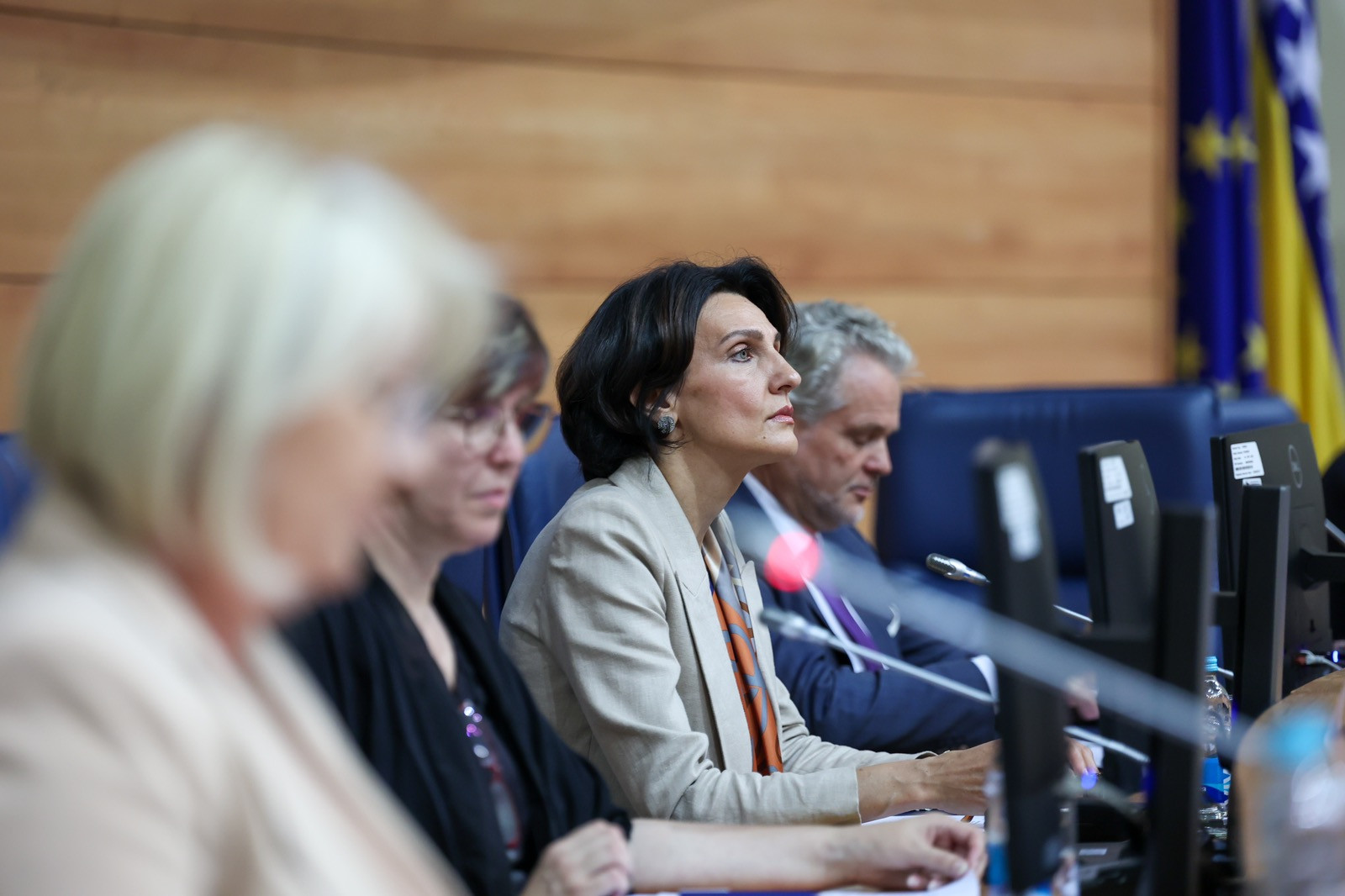
The Conference on the Accession Negotiations between BiH and EU: The Executive and Legislative Authorities should drive the process
The Conference on the Accession Negotiations between BiH and EU, organised by the Council of Ministers of BiH and the Directorate for European Integration, was held on 28 May 2024 in Sarajevo.
The Conference gathered officials from all levels of government in BiH, members of European integration bodies, the European Commission’s representatives and chiefs of negotiating teams for the EU membership from countries in the region.
The Chairperson of the Council of Ministers of BiH Borjana Krišto opened the Conference.
The Director for the Western Balkans of the Directorate-General for Neighbourhood and Enlargement Negotiations (DGNEAR) and the EU Chief Negotiator for BiH Valentina Superti addressed the participants on behalf of the European Commission as well as the Head of EU Delegation to BiH and EU Special Representative to BiH Johann Sattler.
Experiences and lessons learnt from their own countries were presented by the Minister for the European Integration and the Chief of the Republic of Serbia Negotiating Team in negotiations with EU Tanja Miščević, former Chief Negotiator of the Republic of Croatia Vladimir Drobnjak, the Deputy Chief Negotiator of the North Macedonia in negotiations with EU Drita Abdiu Halili and the former Minister for European Affairs and former Chief Negotiator of Montenegro in negotiations with EU Aleksandar Andrija Pejović.
The Director of the Directorate for European Integration of BiH Elvira Habota emphasised in her closing remarks that the accession negotiations concerned the entire BiH and that representatives of all levels of government, economy, academy, NGO’s and the media had to be included.
“Political stakeholders will have the greatest responsibility as the negotiation process necessitates significant yet challenging political decision-making. The process engine should be the executive and legislative authorities in BiH that will take responsibility to propose, adopt and implement new and rapid reforms” Director Habota stated.
She also referred to the process tasks, noting that the adoption of the negotiation framework and the first intergovernmental conference with EU would require taking all necessary steps from the European Commission’s recommendation from 2022. Among important tasks, she singled out preparations for explanatory screening meetings and establishment of an efficient negotiation structure.
“There are many challenges before us. But that cannot be an excuse for us not to work, especially at this moment after we have achieved good results and EU has opened many doors to us” Director Habota concluded.
 Bosna i Hercegovina
Bosna i Hercegovina 
